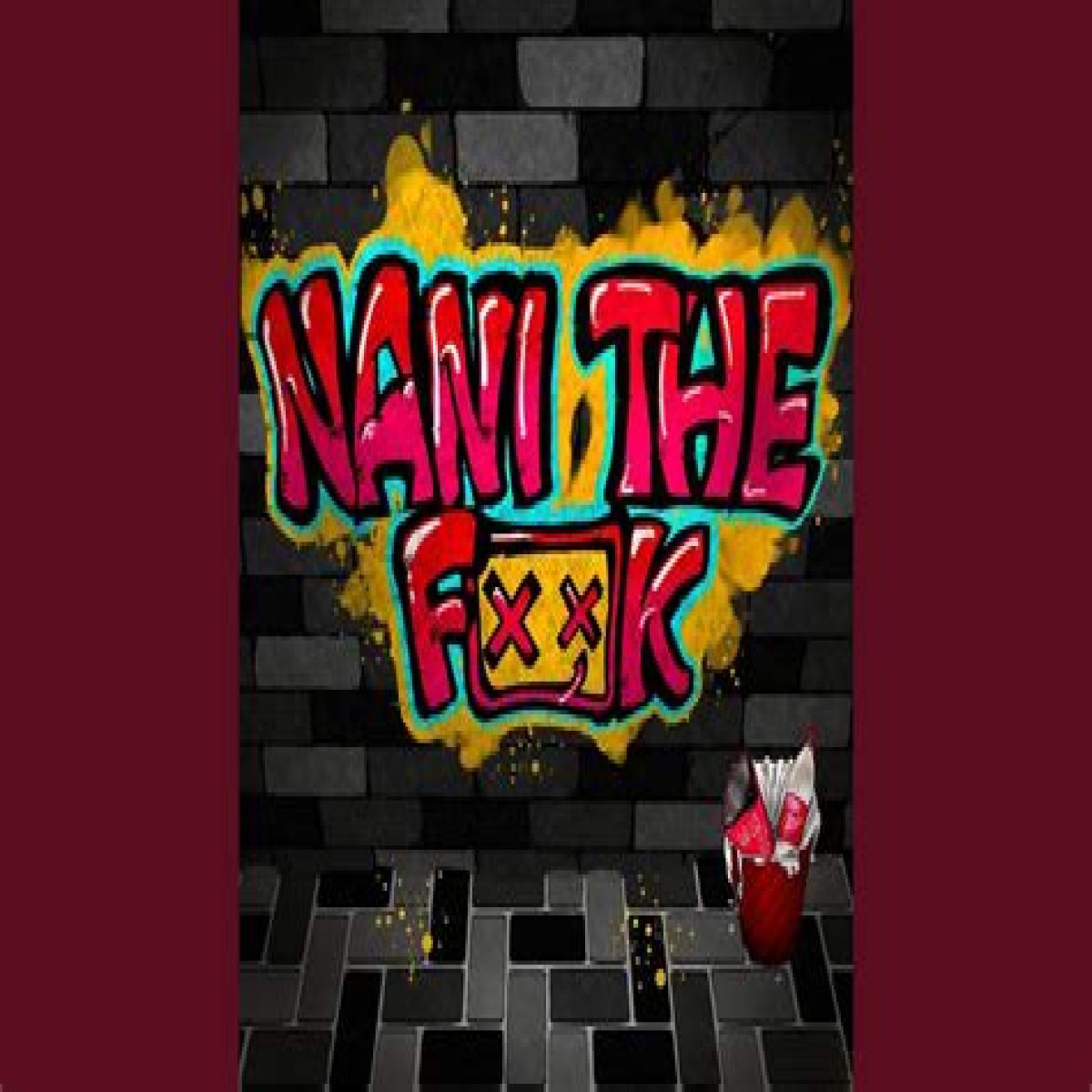Nani the fuck has become a phrase that resonates with many, particularly in the realms of social media and popular culture. Originating from a seemingly innocuous expression, it has evolved into a powerful colloquialism that captures surprise, disbelief, or even humor in various contexts. This article delves into the origins, implications, and cultural significance of this intriguing phrase, shedding light on why it has captured the attention of so many.
The phrase "nani the fuck" has its roots in the Japanese word "nani," which translates to "what." When combined with the expletive, it creates an expression that conveys a heightened level of astonishment or confusion. It is frequently employed in memes, videos, and online discussions, making it a staple in the lexicon of the internet. As we explore its impact, we will uncover how this expression reflects broader trends in communication and cultural exchange.
In a world where online interactions often lack the depth of face-to-face conversations, phrases like "nani the fuck" serve as a bridge to express emotions succinctly. This article will examine the various contexts in which this phrase is used, its rise in popularity, and the implications it carries in conversations today. Prepare to delve into the phenomenon of "nani the fuck" and uncover its layers of meaning.
- What is the Origin of "Nani the Fuck"?
- How Has "Nani the Fuck" Influenced Pop Culture?
- Who Uses "Nani the Fuck"?
- Can "Nani the Fuck" be Used in Formal Contexts?
- What Are the Variations of "Nani the Fuck"?
- How Has "Nani the Fuck" Transcended Boundaries?
- What Are the Social Implications of Using "Nani the Fuck"?
- Conclusion: The Lasting Impact of "Nani the Fuck"
What is the Origin of "Nani the Fuck"?
The phrase "nani the fuck" combines a Japanese word with a casual English expletive, creating a unique cross-cultural expression. The origins can be traced back to the anime community, where "nani" is often used in dramatic scenes to express shock or surprise. Over time, fans started using it humorously in various memes and social media posts, leading to its widespread acceptance.
How Has "Nani the Fuck" Influenced Pop Culture?
In recent years, "nani the fuck" has infiltrated pop culture, becoming a staple in memes and viral videos. It is often used in comedic contexts to amplify reactions, making it an effective tool for content creators. Here are a few ways it has influenced pop culture:
- Viral Videos: Content creators have incorporated "nani the fuck" into skits and reaction videos, leading to widespread sharing.
- Meme Culture: The phrase is frequently used in memes to capture moments of disbelief or surprise.
- Merchandising: From T-shirts to stickers, "nani the fuck" has found its way onto various merchandise, appealing to fans of anime and internet culture.
Who Uses "Nani the Fuck"?
This phrase is predominantly used by younger generations, particularly those who engage with anime, gaming, and meme culture. It serves as a way to connect with others who understand the context and humor behind the expression. However, its reach extends beyond these communities, as it has permeated mainstream culture through social media platforms like TikTok, Twitter, and Instagram.
Can "Nani the Fuck" be Used in Formal Contexts?
While "nani the fuck" has become a popular expression in casual conversations and online interactions, it is not appropriate for formal contexts. Using this phrase in professional settings could lead to misunderstandings or be perceived as unprofessional. Therefore, it's essential to gauge the appropriateness of language based on the environment.
What Are the Variations of "Nani the Fuck"?
As with many phrases in internet culture, "nani the fuck" has spawned various iterations and adaptations. Some of these variations include:
- "Nani?" - A simpler version, often used in anime.
- "What the fuck?" - A more common English equivalent.
- "Nani the hell?" - An alternative that retains the surprise element.
How Has "Nani the Fuck" Transcended Boundaries?
The phrase's ability to transcend cultural boundaries is one of its most intriguing aspects. It combines elements of Japanese language and English vernacular, making it relatable to a diverse audience. As globalization continues to influence communication, expressions like "nani the fuck" highlight the blending of cultures and languages in modern discourse.
What Are the Social Implications of Using "Nani the Fuck"?
Using "nani the fuck" can have various social implications. It can serve as a bonding tool among friends who share a mutual understanding of its meaning. However, it can also alienate those who aren't familiar with the phrase or its cultural context. Here are some considerations:
- Community Building: Using the phrase can foster a sense of belonging among those who understand its significance.
- Exclusion: Those unfamiliar with anime or meme culture may feel left out of the conversation.
- Cultural Sensitivity: It's important to be aware of the cultural origins of the phrase and use it respectfully.
Conclusion: The Lasting Impact of "Nani the Fuck"
In conclusion, "nani the fuck" is more than just a humorous expression; it's a cultural phenomenon that reflects the evolving nature of language and communication in the digital age. As it continues to resonate with audiences worldwide, it serves as a reminder of how language can bridge gaps between cultures and create connections among individuals. Whether used in jest or genuine surprise, this phrase encapsulates a unique blend of emotions that speaks to the heart of modern communication.
Unlocking Creativity: The Musgrave Songwriter PencilDiscovering The Treasures Of Hastings On Hudson LibraryDiscovering The Charm Of A Highland Cow Farm Near Me
